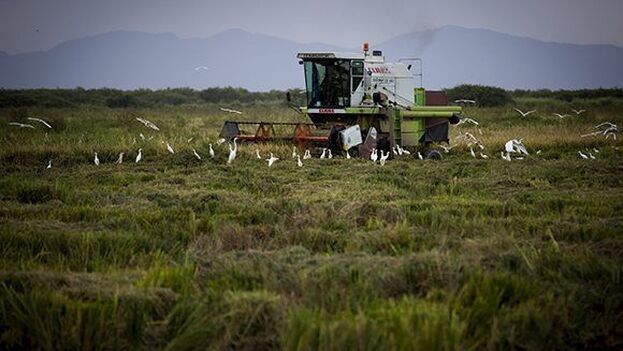
![]() EFE (via 14ymedio), Miami, March 7, 2023 — On Monday a group of Democratic and Republican senators introduced legislation that would lift the U.S. embargo on trade with Cuba and create new opportunities for American businesses.
EFE (via 14ymedio), Miami, March 7, 2023 — On Monday a group of Democratic and Republican senators introduced legislation that would lift the U.S. embargo on trade with Cuba and create new opportunities for American businesses.
The draft legislation, which was introduced in the Senate during the last legislative session but has yet to move forward, is being sponsored by Democrats Amy Klobuchar, Elizabeth Warren and Dennis Murphy along with Republicans Jerry Moran and Roger Marshall.
Klobuchar’s office issued a press release stating that the proposed legislation would eliminate legal barriers preventing Americans from doing business in Cuba but would keep in place laws that address human rights or property claims against the Cuban government.
The statement indicates that Klobuchar believes that putting an end “once and for all” to the six-decade-long U.S. trade embargo on Cuba would turn a page on “a failed policy of isolation” while simultaneously generating new economic opportunities.
Warren added, “This legislation takes important steps to remove barriers for U.S. trade and relations between our two countries and moves us in the right direction by increasing economic opportunities for Americans and the Cuban people.”
The legislators note that Cuba relies on agricultural imports to feed its eleven million citizens and foreign visitors.
According to the press release, the U.S. International Trade Commission has determined that, if trade restrictions were lifted, exports of products such as wheat, rice and soybeans could increase 166% in 5 years to a total of 800 million dollars.
Under current rules, Cuba must pay in cash, and in advance, for products it imports from the United States. Additionally, because it is not a member of the International Monetary Fund or the World Bank, the island does not have access to foreign credit. This, along with failure to pay its foreign debt, limits access to other types of credit.
The amount the island nation paid its northern neighbor for agricultural supplies and food products in 2022 totaled 328.5 million dollars, a 7.7% increase from the 304.7 million reported in 2021, according to the US-Cuba Economic and Trade Council.
Chicken is the island’s top food import. In 2021 it spent 295 million dollars on it, a figure 5.6% higher than the 280 million dollars it spent the previous year.
____________
COLLABORATE WITH OUR WORK: The 14ymedio team is committed to practicing serious journalism that reflects Cuba’s reality in all its depth. Thank you for joining us on this long journey. We invite you to continue supporting us by becoming a member of 14ymedio now. Together we can continue transforming journalism in Cuba.
